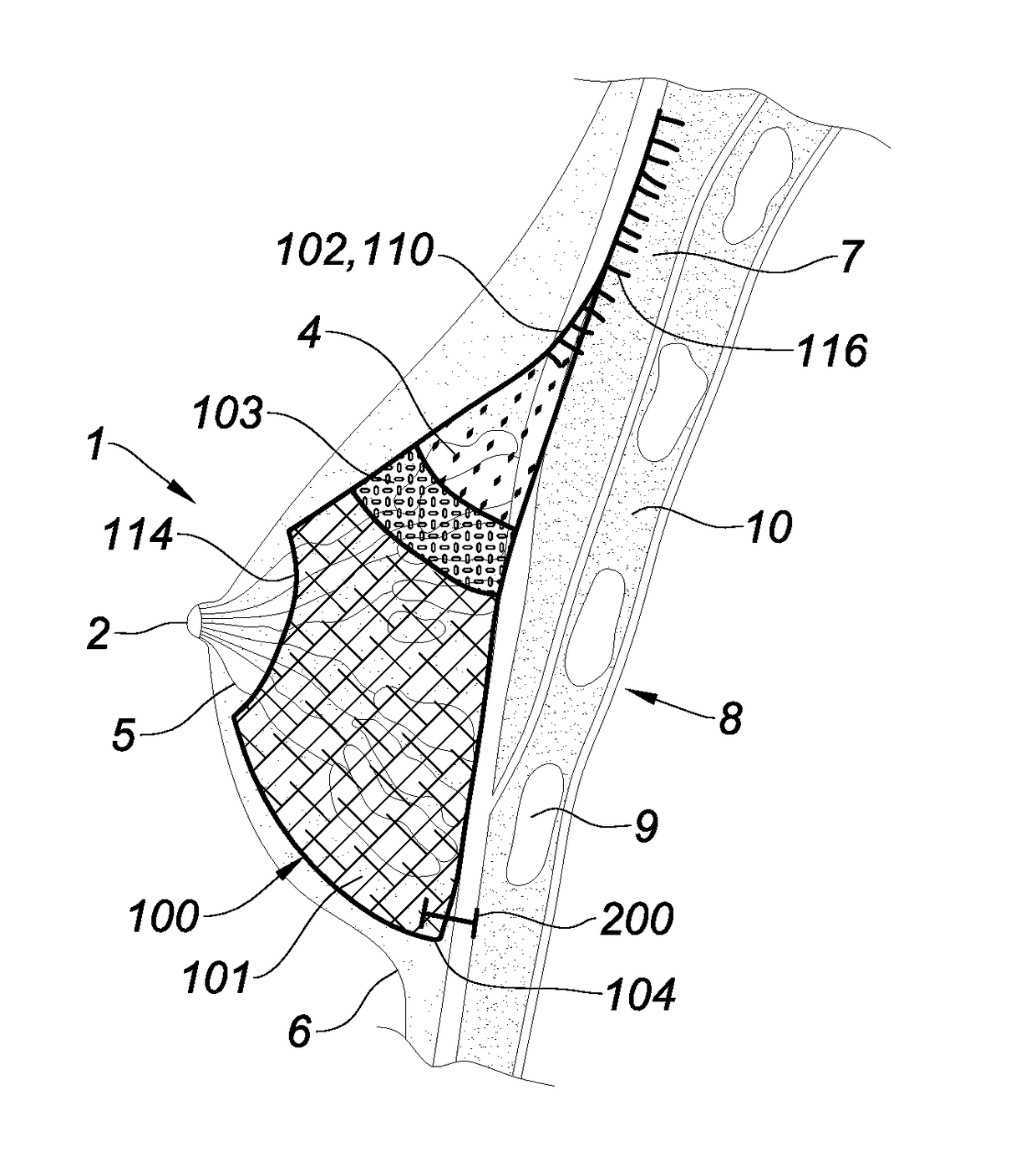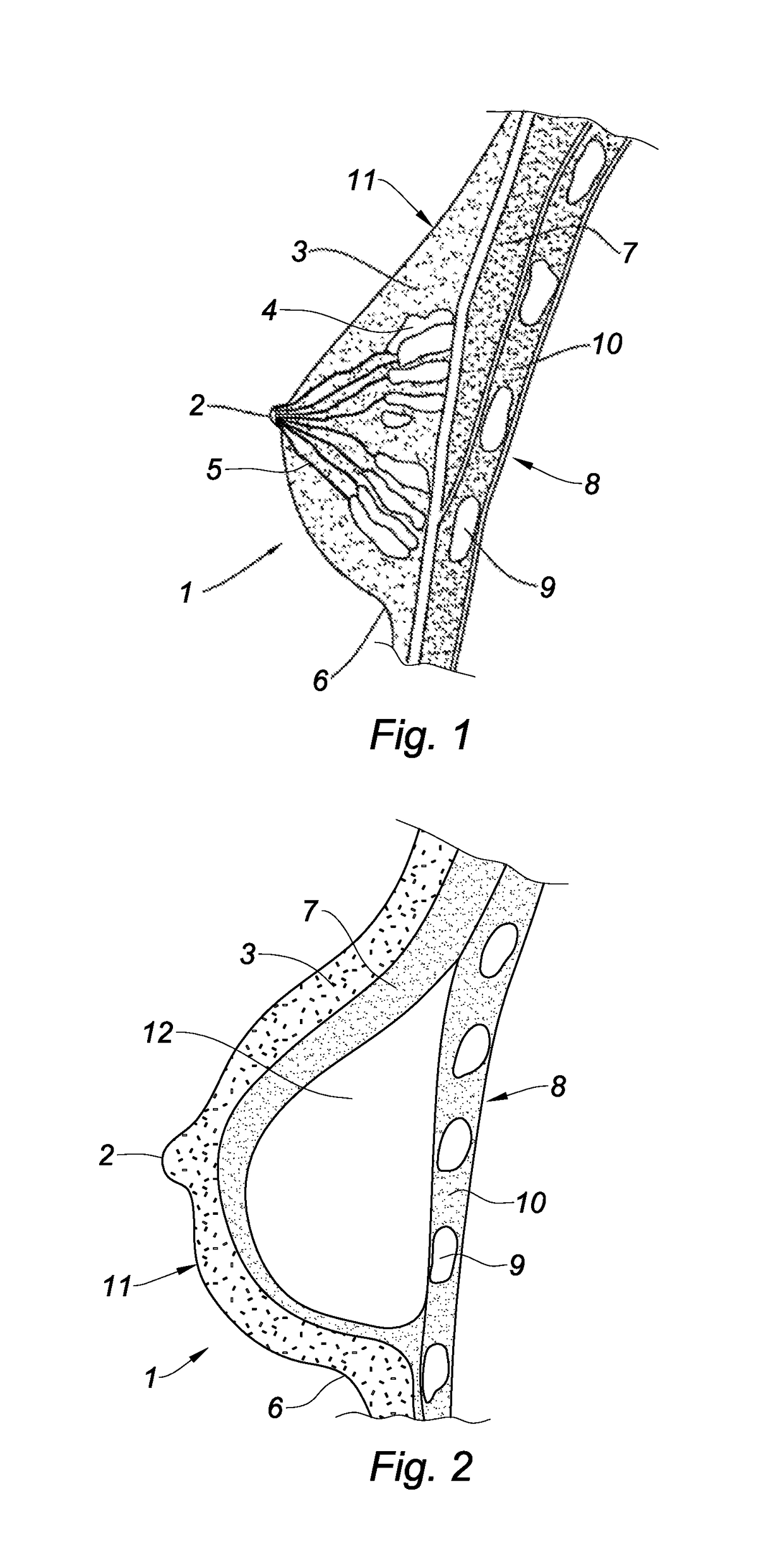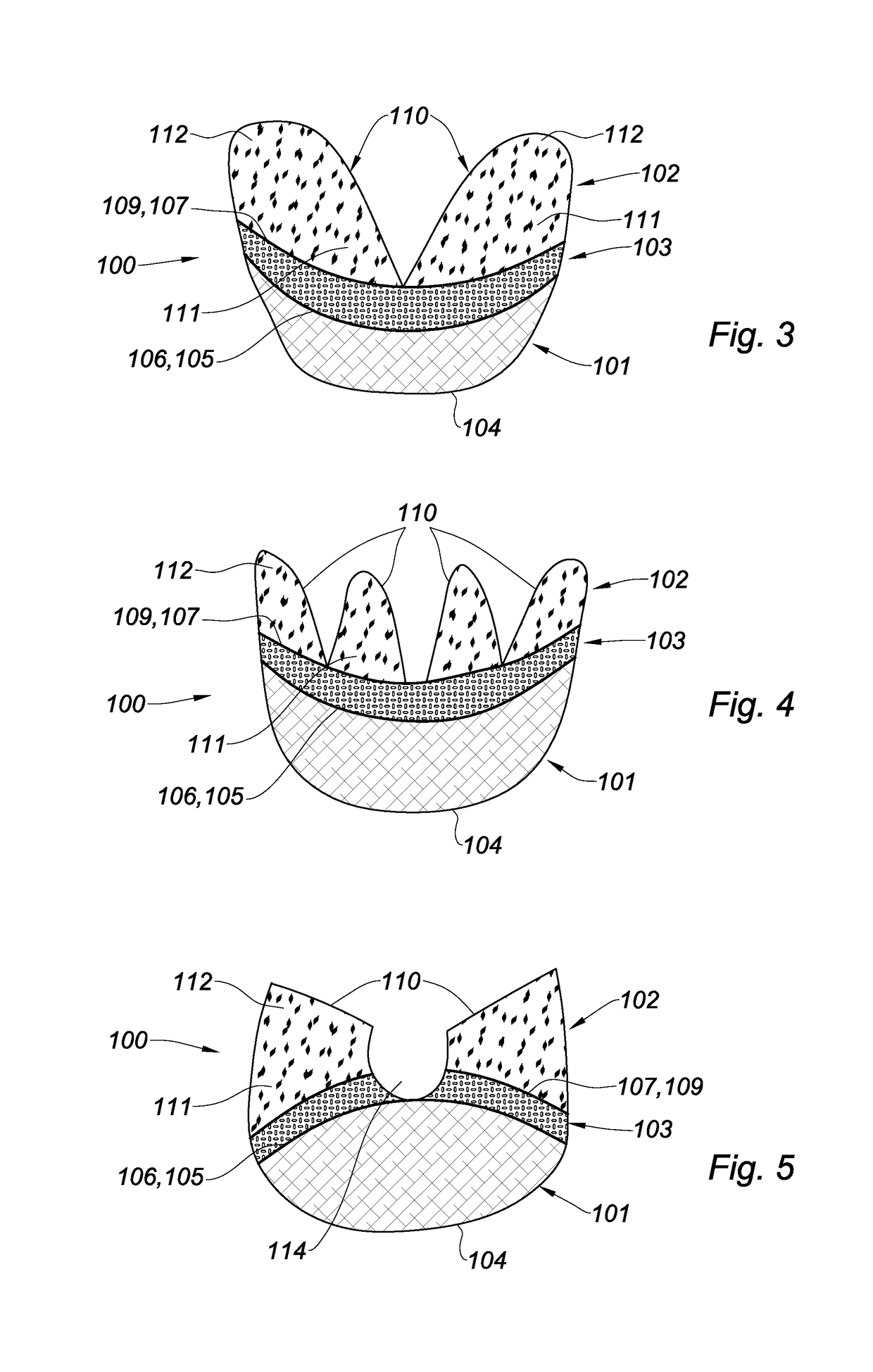Prosthesis for supporting a breast structure
a breast structure and prosthesis technology, applied in the field of breast structure prosthesis, can solve the problems of uneven or miss-cut mesh sheets, time-consuming and fastidious surgeons, uncomfortable patients, etc., and achieve the effect of lifting up breast tissue and significant thickness variations or fabric ridges
- Summary
- Abstract
- Description
- Claims
- Application Information
AI Technical Summary
Benefits of technology
Problems solved by technology
Method used
Image
Examples
Embodiment Construction
[0267]With reference to FIGS. 3-8 are shown embodiments of a prosthesis 100 of the invention. As will appear from the description below, the prosthesis 100 is intended to be implanted into a female patient in a view of supporting a breast implant 12 (see FIG. 10) in breast reconstruction post mastectomy or in a view of supporting breast tissue (see FIGS. 11 and 12) in breast lifting aesthetics surgery.
[0268]With reference to FIGS. 3-8, the prosthesis 100 comprises three parts, a reinforcement part 101, a fixation part 102 and a transition part 103. The reinforcement part 101 is configured to receive at least a curve-shaped lower portion of a breast structure and is intended to be sutured to the chest wall or to the infra-mammary fold. The fixation part 102 is intended to be fixed to the pectoral muscle. The fixation part 102 will usually be surrounding the top conical portion of the breast structure (see FIGS. 10 and 11). The transition part 103 connects the reinforcement part 101 t...
PUM
 Login to View More
Login to View More Abstract
Description
Claims
Application Information
 Login to View More
Login to View More - R&D
- Intellectual Property
- Life Sciences
- Materials
- Tech Scout
- Unparalleled Data Quality
- Higher Quality Content
- 60% Fewer Hallucinations
Browse by: Latest US Patents, China's latest patents, Technical Efficacy Thesaurus, Application Domain, Technology Topic, Popular Technical Reports.
© 2025 PatSnap. All rights reserved.Legal|Privacy policy|Modern Slavery Act Transparency Statement|Sitemap|About US| Contact US: help@patsnap.com



